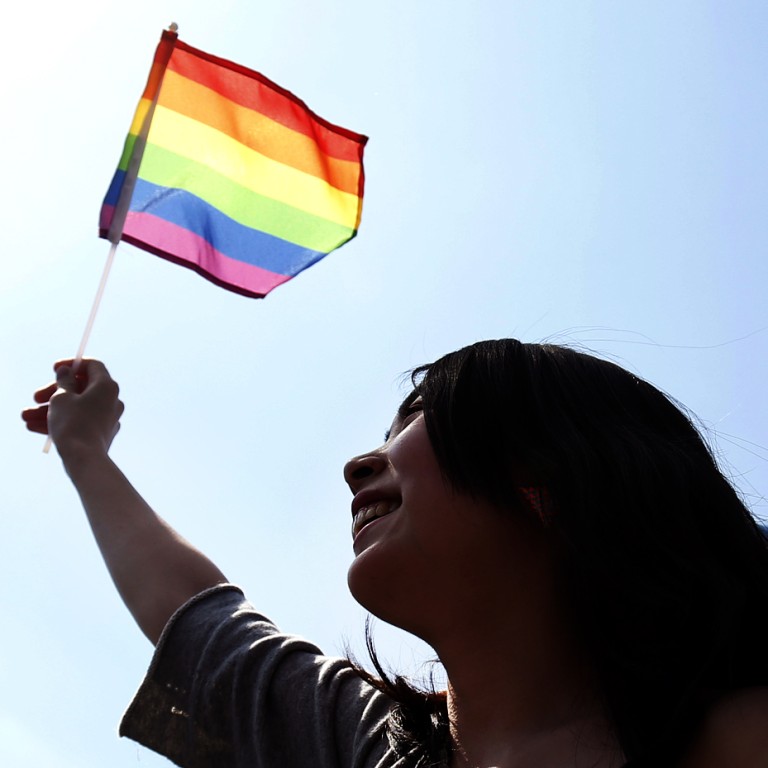
Lesbian challenges Hong Kong's decision to refuse her a dependant visa in court
Woman forced to rely on a tourist visa to live with her civil partner in city claims Immigration Department is discriminating against her
A lesbian couple will tomorrow challenge the Immigration Department's refusal to recognise same-sex relationships when handling applications for dependant visas.
The High Court case has huge implications, not least for multinational corporations which struggle to move homosexual employees to Hong Kong amid concerns their partners will not be allowed to stay in the city. It will also test the government's approach to handling the rights of gay and lesbian people at a time when it is considering how to move forward with legislation on discrimination on grounds of sexual orientation.
The challenge is being brought by a couple named only as SS and QT, who moved to Hong Kong in September 2011 after SS secured a professional job in the city. The couple had, in May that year, forged a civil partnership in Britain, a status that gives a couple the same rights and responsibilities as a married couple under British law.
However the Hong Kong Immigration Department has twice ruled out QT's application for a dependant visa, a decision she is challenging as "discriminatory".
QT has since had to depend on a tourist visa, which requires her to leave Hong Kong every six months and prevents her from working or building up eligibility to apply for permanent residency - which holders of dependant visas can seek after seven years.
Not long after she launched her legal challenge, the department told QT she could be granted "some form of visa on humanitarian grounds", according to her solicitor, human rights specialist Michael Vidler.
"Unsurprisingly, my client was not prepared to have that differential treatment," Vidler told the .
The decision was "discriminatory" and contrary to the Basic Law and the Bill of Rights Ordinance, Vidler argued, adding: "If they were a heterosexual couple, they would have been granted a dependant visa."
A dependant visa is granted to a spouse, unmarried dependant, children under 18 or parents aged 60 or above of a sponsor who is a Hong Kong resident who is not subject to a limit of stay, according to the department.
The department's website does not specify whether same-sex couples are eligible.
Vidler said the department would argue that QT and SS were not regarded as "spouses" in its view, and that it adopted a restrictive immigration policy.
Vidler said the government's refusal to recognise same-sex marital relationships set Hong Kong apart from other major economies in the region and jeopardised its competitiveness.
New Zealand granted dependant visas to same-sex couples who had lived together for 12 months, Vidler said. The mainland, Vidler noted, allowed same-sex partners to apply for "cohabitation certificates" to support visa applications.
"Sadly we seem to be yet again out of step with other countries that adopt a more enlightened approach," he said.
The city's Equal Opportunities Commission last year launched a widespread review of discrimination laws, including the question of discrimination on grounds of marital status. But the question of a ban on discrimination on grounds of sexual orientation remains controversial amid opposition from conservative religious groups.

